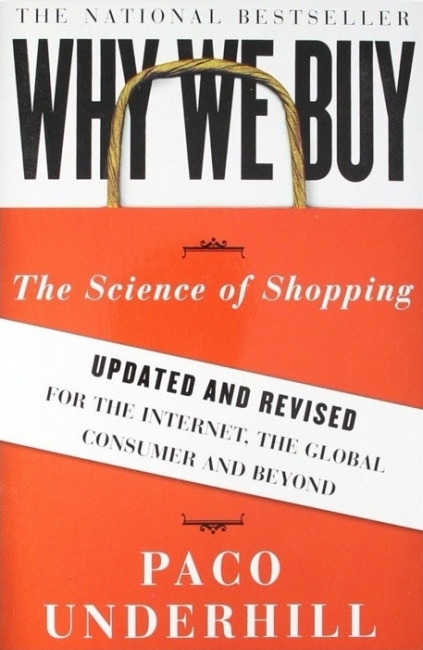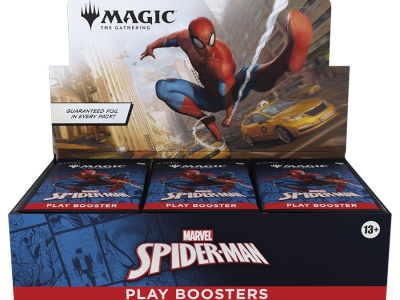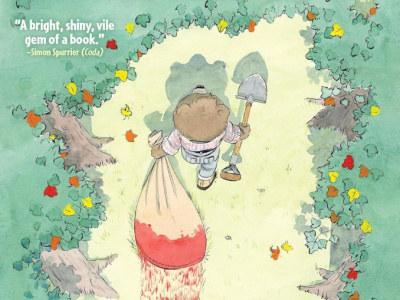Rolling for Initiative is a weekly column by Scott Thorne, PhD, owner of Castle Perilous Games & Books in Carbondale, Illinois and instructor in marketing at Southeast Missouri State University. This week, Thorne reviews utilitarian vs. hedonic motives, and bids farewell to Steve Perrin.
Why We Buy is the title of a classic book on retailing and consumer behavior written by Paco Underhill back in 2000, and if you have not read it yet and run a game or comic store, you should (you should also read the books by Gary Ray and Dave and Kelli Wallace but that’s another column). This week, I wanted to look at the basic reasons behind why we buy stuff.
There are two basic motivations for why we buy items: utilitarian and hedonic. Utilitarian motivations are those things that motivate us to solve a problem, satisfy a need, or perform a duty. Such things as eating, going to work, or studying for an exam are all classified as utilitarian motivations since we are performing them into to survive (eating), earning a paycheck (going to work) or passing a class (studying for an exam). The basic action is not performed because we want to do so, but rather because we need to do so to either continue to exist or make our lives better.
Hedonic motivations, however, are those things that motivate us because we enjoy them. We decide to do them because they give us pleasure. Eating is a perfect example. The act of eating itself is a utilitarian activity. We must do it in order to survive. However, what we eat is a hedonic choice. You could opt to consume something like Soylent, a liquid combination of all sorts of nutrients the manufacturer says your body needs to remain healthy. Most of us, though, would prefer either a Big Mac, a nicely broiled piece of salmon, or a well-crafted cheese pizza. Any one of them will satisfy our utilitarian need to stop our hunger, but individual people develop preferences for different types of food.
The reason I bring this up is that almost everything that a typical game or comic store sells satisfies a hedonic motivation. There is evidence that humans need play and entertainment, so from a utilitarian standpoint games and comics satisfy that need; but at its most basic, entertainment could consist of going for a long walk, or skipping a stone across a pond. The variety of games offered by any single game store appeals to our hedonic desires for a wide variety of entertainment and appeal to our senses. Humans have an almost infinite desire for entertainment and stimulation. Some enjoy eating, some enjoy sports, and happily for the FLGS, a goodly number enjoy games.
I was sorry to hear of the passing of Steve Perrin this past Thursday. As was fitting, most of the game industry learned of it through the obituary that Chaosium Inc., the company most associated with his work, posted on its website. Also a founding member of the Society for Creative Anachronism, Perrin brought his first games, the board game White Bear & Red Moon and the RPG RuneQuest, to Chaosium, which published them in 1976 and 1978.
Although Perrin only remained employed by Chaosium for a few years, his work is inextricably linked with the company, as he developed or contributed to the following RPGS: Call of Cthulhu, Stormbringer, Worlds of Wonder, SuperWorld, Elfquest and many others. If you played an RPG during the 80s, chances are it was influenced by his work. Over the next 30 years, he worked in both the tabletop and computer gaming industry, recently returning to Chaosium as a creative consultant. Saying goodbye is never easy but the world is better for having had Steve Perrin in it.
The opinions expressed in this column are solely those of the writer, and do not necessarily reflect the views of the editorial staff of ICv2.com.
[Photo used under CC-by-SA.]

Column by Scott Thorne
Posted by Scott Thorne on August 16, 2021 @ 2:20 am CT
MORE COMICS
At AnimeNYC
August 22, 2025
The winners of the 2025 American Manga Awards, organized by AnimeNYC owner LeftField Media and Japan Society, were announced in a ceremony at AnimeNYC in New York on August 21.
From Marvel Comics
August 22, 2025
This October, Marvel Comics celebrates the release of TRON: Ares with new variant covers.
MORE COLUMNS
Column by Jeffrey Dohm-Sanchez
August 21, 2025
ICv2 Managing Editor Jeffrey Dohm-Sanchez continues to take a look at some of the issues revolving around Universes Beyond products.
Column by Rob Salkowitz
August 19, 2025
For Horror Week, columnist Rob Salkowitz asks whether the horror boom can help get us through a moment full of woe and dread.










